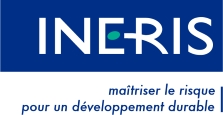The results of the ANSES study on the risks posed by BPA to human health indicate that food accounts for 80% of human exposure to BPA, half of it due to the consumption of tinned products. Water distributed in polycarbonate canisters and the handling of thermal paper (e.g. till receipts) are further sources of exposure.
The study was accompanied by a review of the possible alternatives to BPA in its various fields of application. 73 potential alternative solutions were identified across all such fields.
The alternatives to polycarbonate for use in contact with food products include those based on isosorbide, PLA, and ethylene copolymers.
The alternatives to epoxy resins mentioned in the report are bio-sourced resins, acrylic resins and polyurethane resins.
ANSES also supported its study with a report on the risks associated with other compounds from the bisphenols family, as well as a report on the uncertainties concerning endocrine disruptors.

